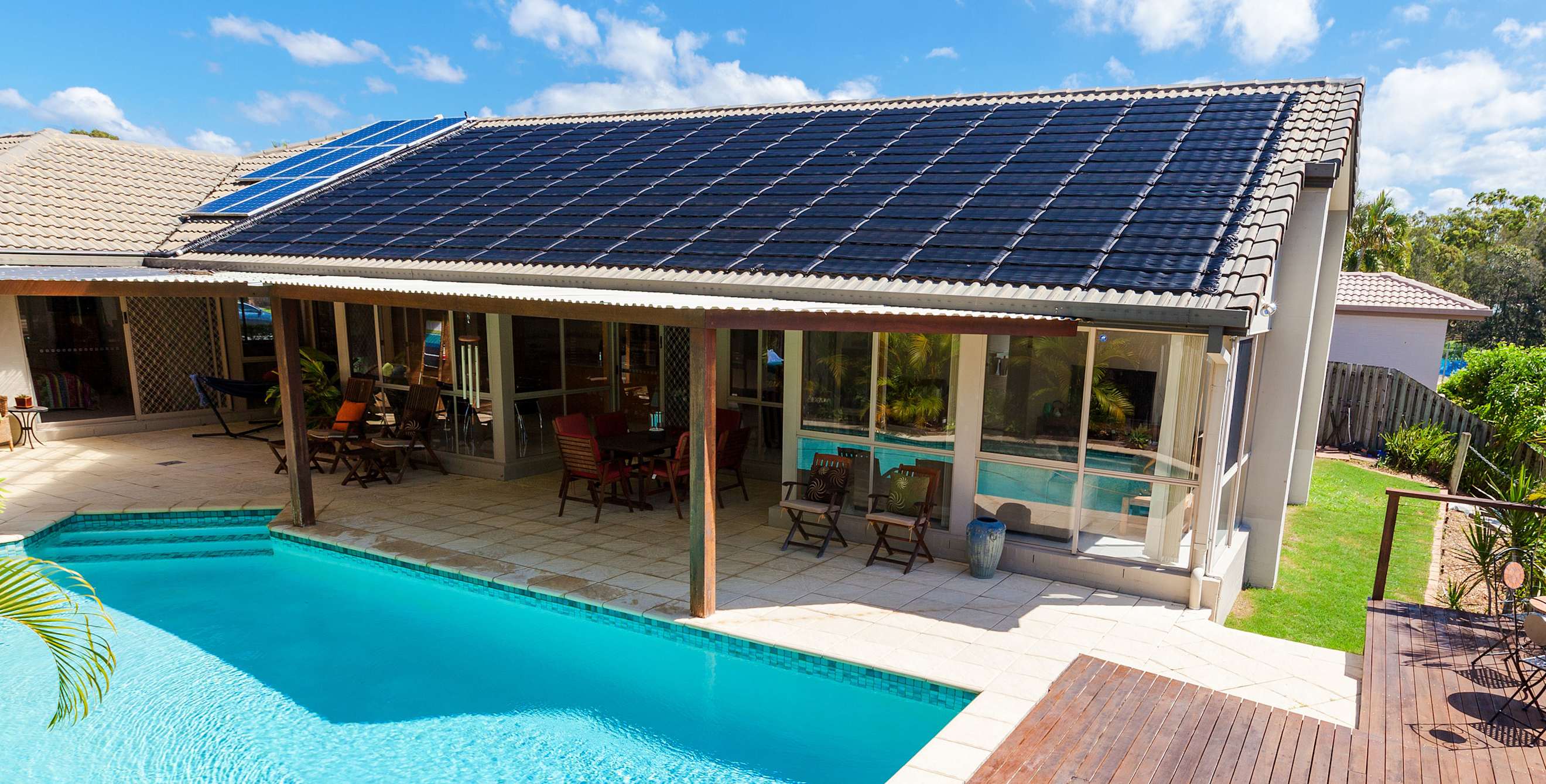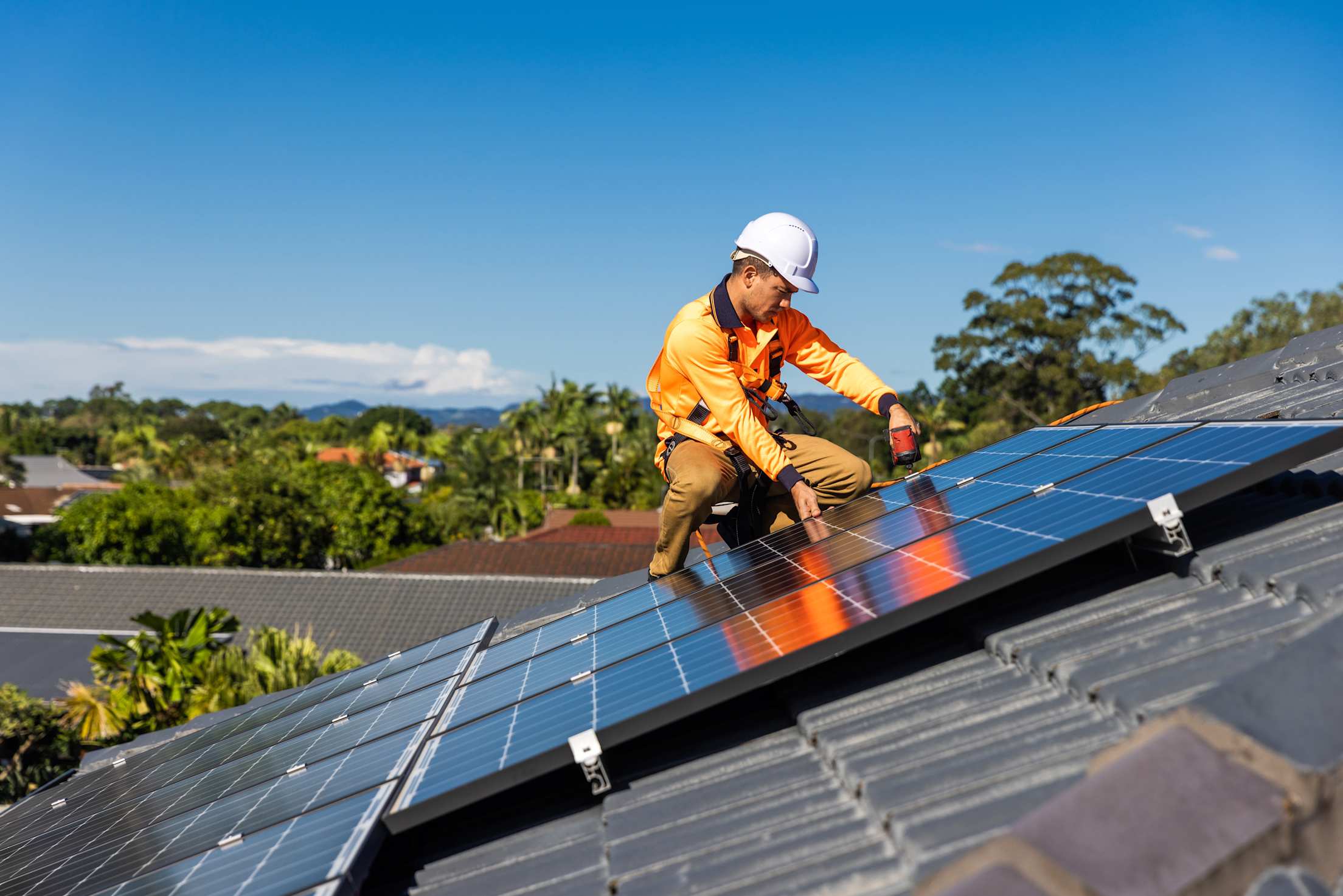
Solar Energy Pros and Cons
Understand the disadvantages and advantages of adding solar panels to your home.

The sun generates an unimaginably large amount of energy, so why not make use of it? That’s the idea behind solar energy, which has quickly grown in popularity, with the government encouraging homeowners to go solar. (As of 2020, all new homes built in California must have rooftop solar panels.) Happily, solar energy systems are becoming more affordable.
Should you make the switch in your own home? Read on to learn about solar energy pros and cons.
What is solar energy?
Solar energy harnesses energy from the sun to heat and cool your home, heat your water, power your lights and appliances, and more. When the sun shines on a home’s rooftop solar panels the sun’s light particles—photons—are absorbed by the photovoltaic cells of the solar panels, creating an electrical field across the layers of cells. A solar inverter then converts that electricity (called DC electricity) to a form of energy that can be used to power your home (AC electricity).

What are the advantages of solar energy?
Using solar energy is good for the planet, and can be good for your pocketbook. The upsides include:
- Cleaner energy. Using sun energy doesn’t burn oil or coal—and therefore doesn’t produce any pollutants or greenhouse gases—so it’s better for Mother Earth. While manufacturing solar panels does create some emissions, solar energy is substantially cleaner overall than electricity generated from fossil fuels. By going solar, the average household reduces their carbon emissions by more than 3,000 pounds a year.
- Lower energy bills. You could save hundreds of dollars a month, depending on factors like the size of your home and where you live. Visit Google’s Project Sunroof and enter your address to get an estimate of your home’s savings potential.
- Extra cash. In some cases, solar users can even make money. If you produce more energy than your home uses, you may be able to sell the excess back to your utility company.
- Improved home value. A 2019 Zillow analysis found that homes with solar panels sold for 4.1 percent more, on average, than homes that don’t have them.
- Low maintenance. Solar systems generally require little maintenance and last for about 25 to 35 years.
What are the disadvantages of solar energy?
While solar energy offers numerous benefits, there are a few downsides.
- High upfront cost. Solar panel prices have dropped by more than 60 percent in recent years. However, homeowners should still expect to pay around $15,000 to $20,000 for solar panels and installation—although tax credits shave that total down.
- Inconsistency. Your solar system will be more productive during sunny times, but less so during darker days, like in the winter.
- Immovable. Trying to remove solar panels can damage both the roof and the panels themselves. So when you move to another house, you’ll most likely leave the solar panels behind.
Are there rebates for solar energy?
Yes. Thanks to the federal government’s solar Investment Tax Credit (ITC), homeowners can get a whopping 30 percent tax credit—a dollar-for-dollar federal income tax reduction—for solar systems installed in 2022 to 2032.
Many states and cities also have their own programs. (Keep in mind that you may need to deduct the value of your state rebate before claiming your federal tax credit.)
Solar energy is clean, renewable, relatively maintenance-free option for powering your home. If you’re considering going solar, understand that you’ll need to make an upfront investment, although you will typically earn those dollars back in the long run. Talk to a solar energy company to find out what kind of performance you can expect in your area and how to take advantage of federal and local government subsidies to lower some of the upfront costs.
AAA Members save up to $60 per year on AAA Smart Home Security Monitoring.